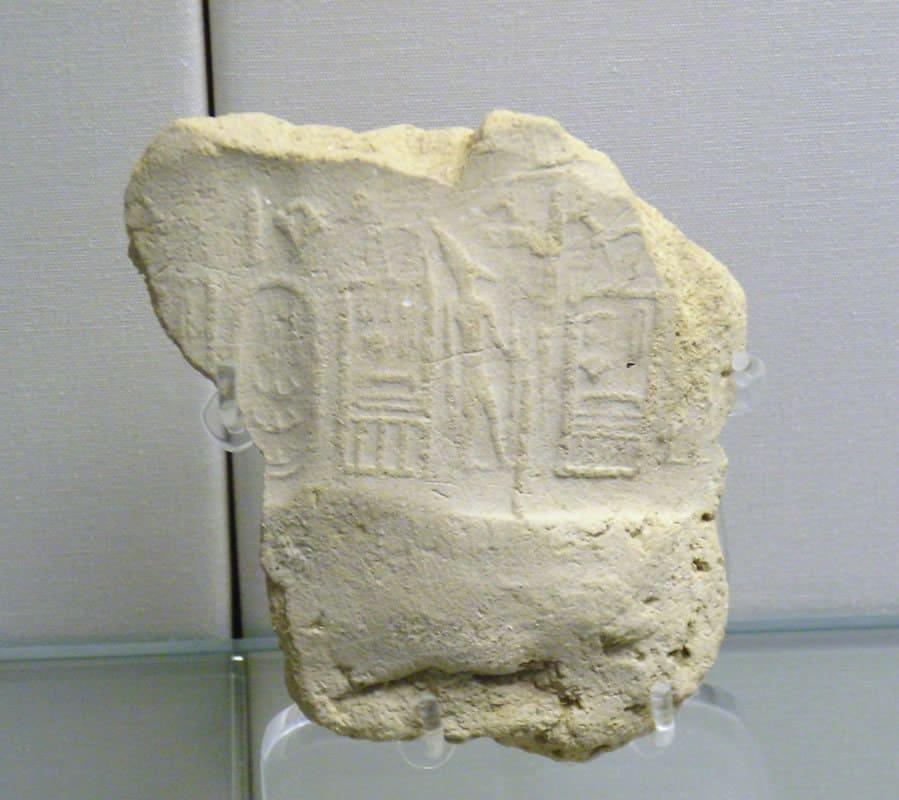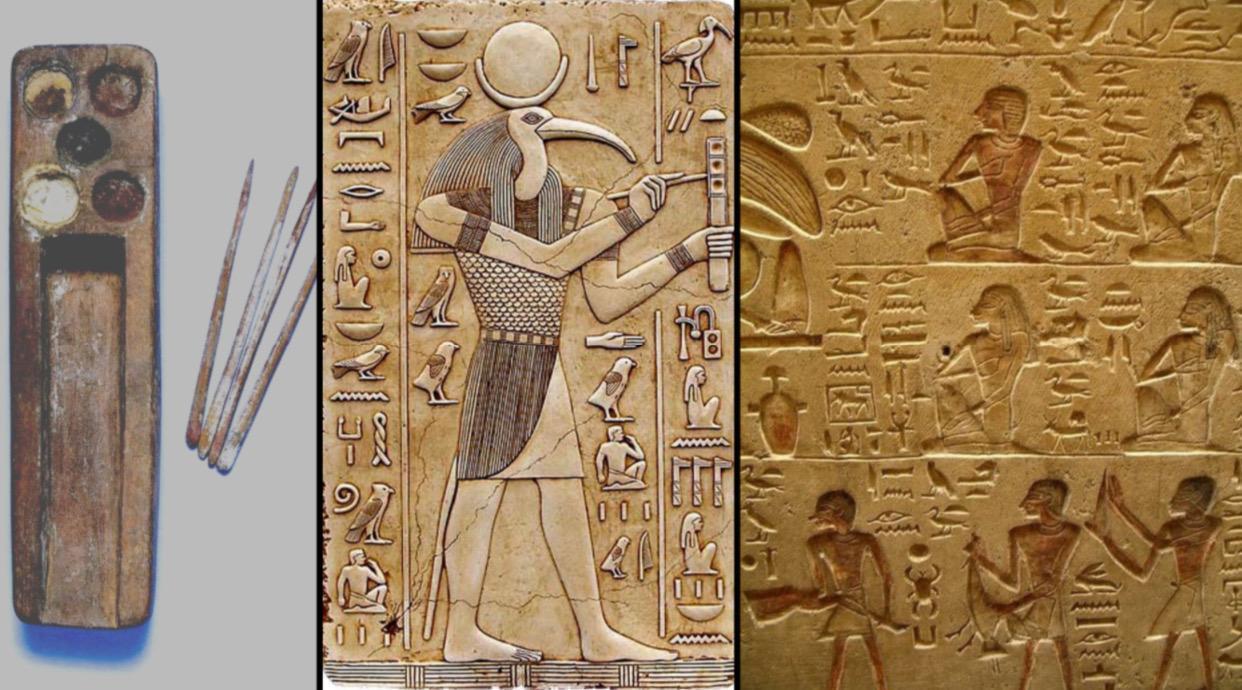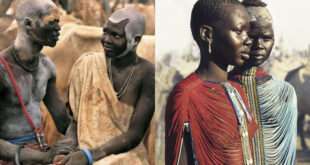Ancient Egyptian writing formed somewhere before the Early Dynastic Period. The idea of the written word was first created in Mesopotamia and spread through trade into Egypt, according to some scholars.
Although there was probably cross-cultural contact between the two regions, Egyptian hieroglyphics are entirely of Egyptian origin; there is no evidence of early writings documenting non-Egyptian ideas, locations, or artifacts, and early Egyptian pictographs have no connection with early Mesopotamian signs.
The Ancient Sumerian civilisation in the Middle East developed writing around 3400 BC, and a few hundred years later the Egyptians were doing the same.
The Egyptians may have developed their system of symbols independently of Sumeria, but it is ultimately impossible to say.

Nonetheless, Hieroglyphics are a fascinating topic in themselves, and a mightily impressive feat.
Hieroglyphics were pictorial representations of words, concepts, and sounds, which were used for an array of purposes.
The earliest instances of hieroglyphic writing are found carved into pottery and ivory in important tombs from the end of the 4th Millenium BC.
Those capable of writing Hieroglyphics began training at around 6 years of age, and enjoyed a very privileged place in society, avoiding taxes and military conscription.
Hieroglyphics as a system of writing operated in a very different manner from modern scripts: a single picture could mean a whole word or part of another, and some were phonetic, meaning that a picture of an animal could be a homonym.
We are only able to decipher Hieroglyphics with a degree of accuracy because of the Rosetta Stone, an ancient crib-sheet which provides the Ancient Greek for religious and secular forms of Hieroglyphics.
The term ‘hieroglyphics’ is, according to scholars, a Greek word; the Egyptians referred to their writing as medu-netjer, ‘the words of the god,’ as they believed the writing had been given to them by the great creator Thoth.
According to one ancient Egyptian story, Thoth created himself in the beginning of time and laid, in the form of an ibis, the cosmic egg containing all of creation.
Thoth appeared in another story at the dawn of time from the lips of the sun god Ra, and in another he was born from the conflict of the gods Horus and Set, representing the powers of order and chaos. Nevertheless, in all of these the constant is that Thoth was born with an enormous breadth of knowledge and the knowledge of the power of words, among the most important.
Thoth openly gave this knowledge to human beings but it was a duty that he wanted them to take seriously. Words may harm, cure, elevate, kill, condemn, and even elevate someone to life from death.
 The African History Truly African
The African History Truly African

